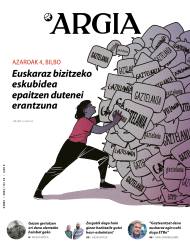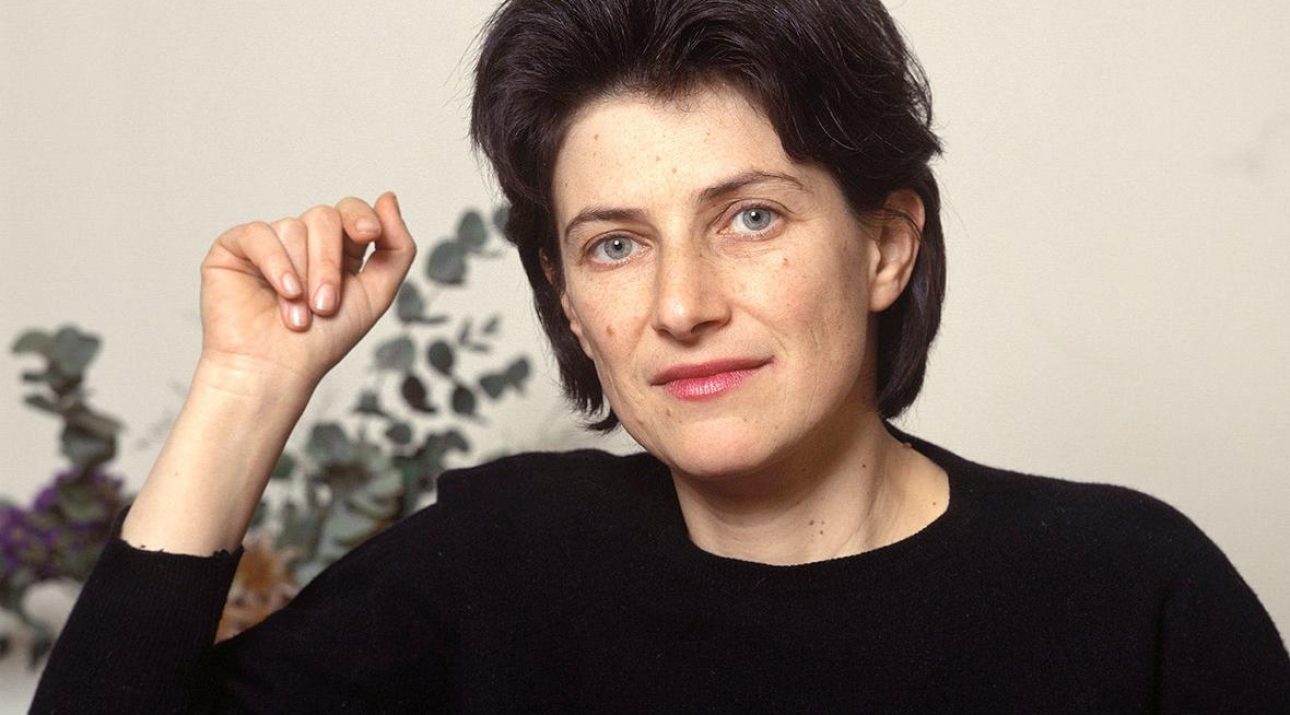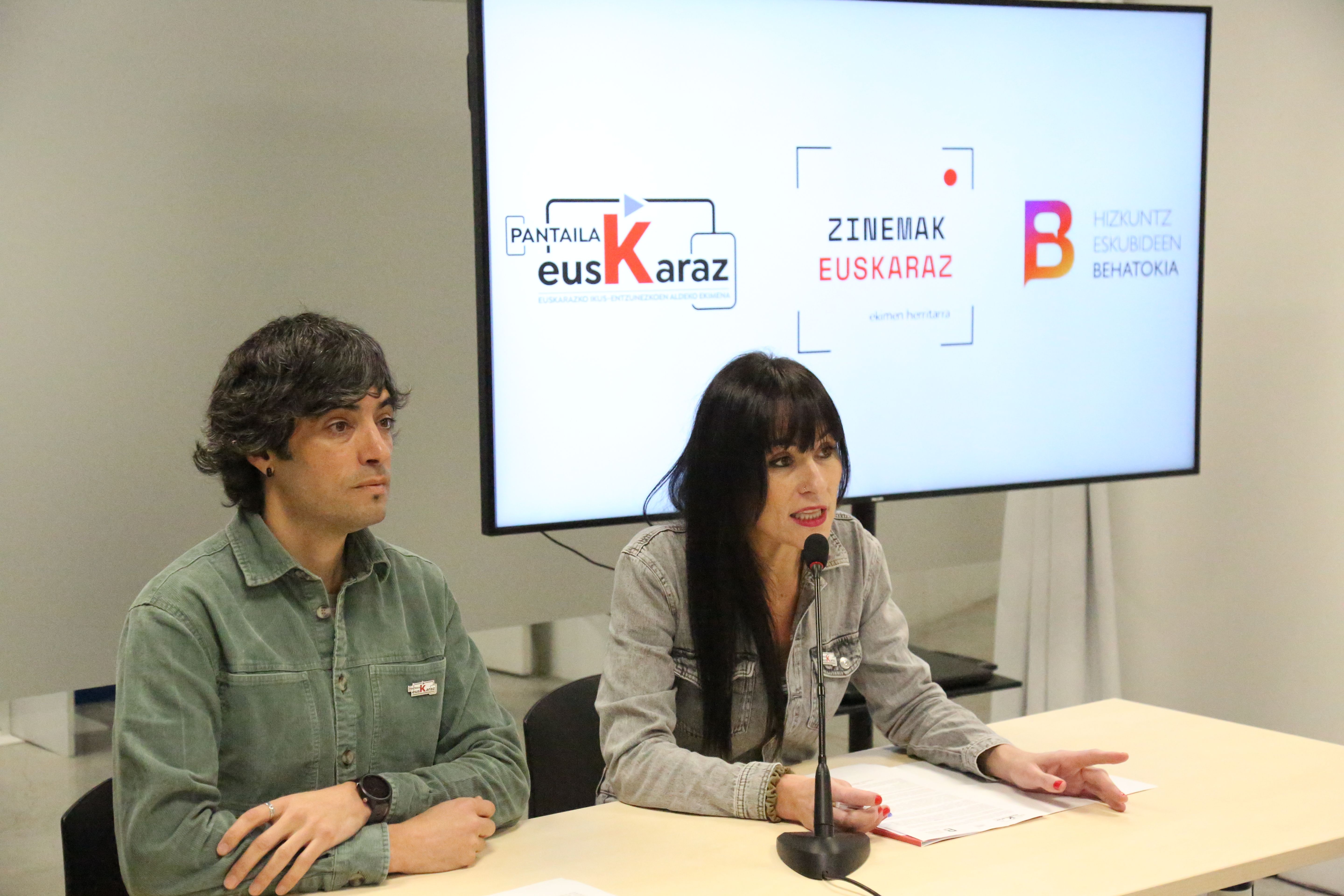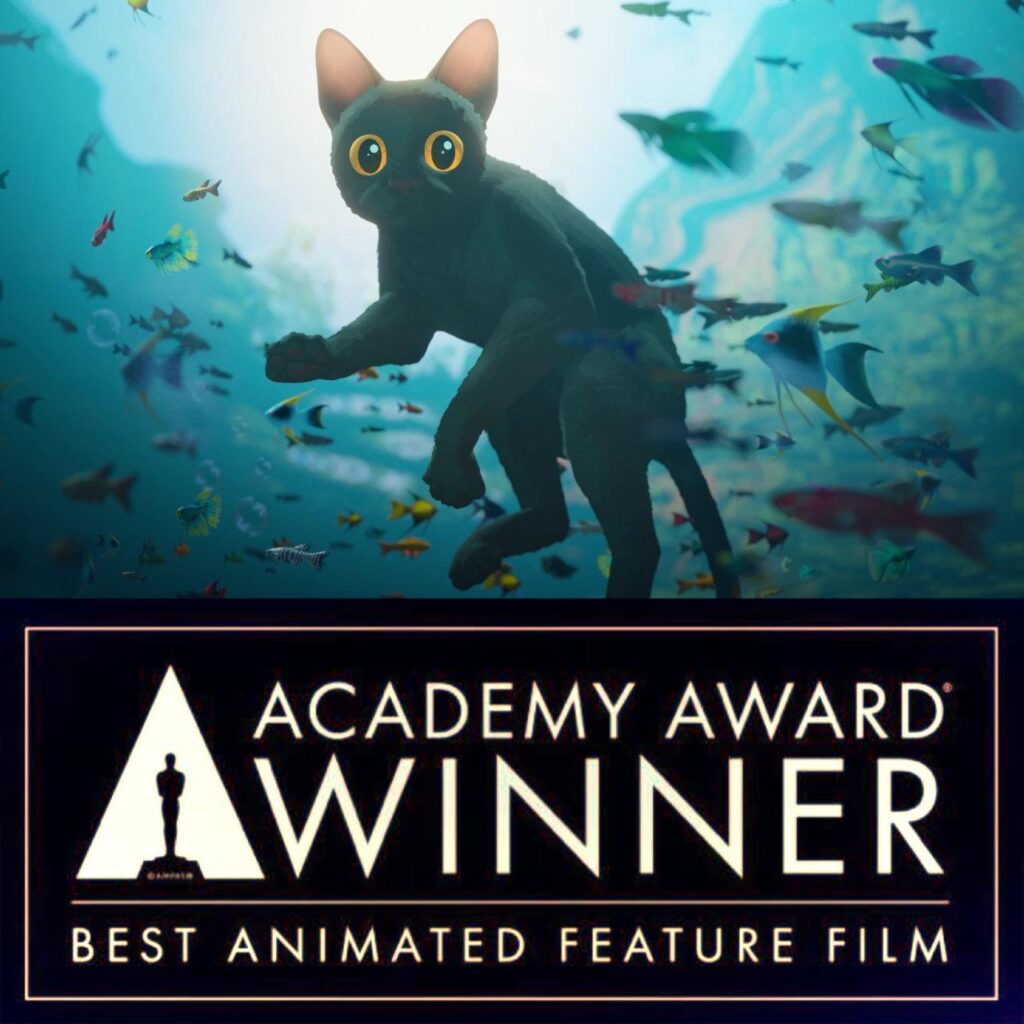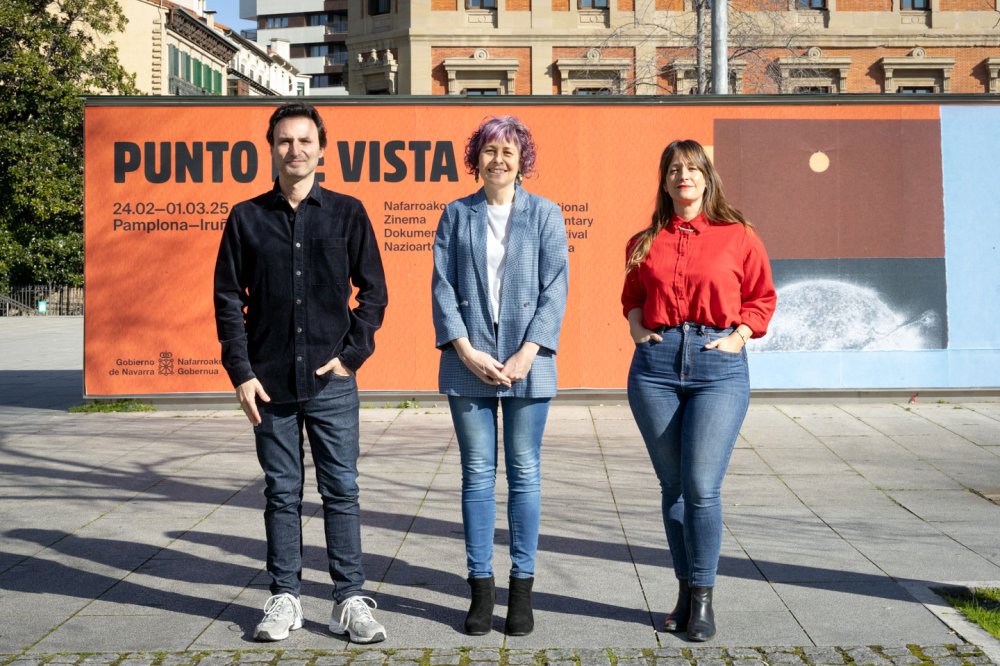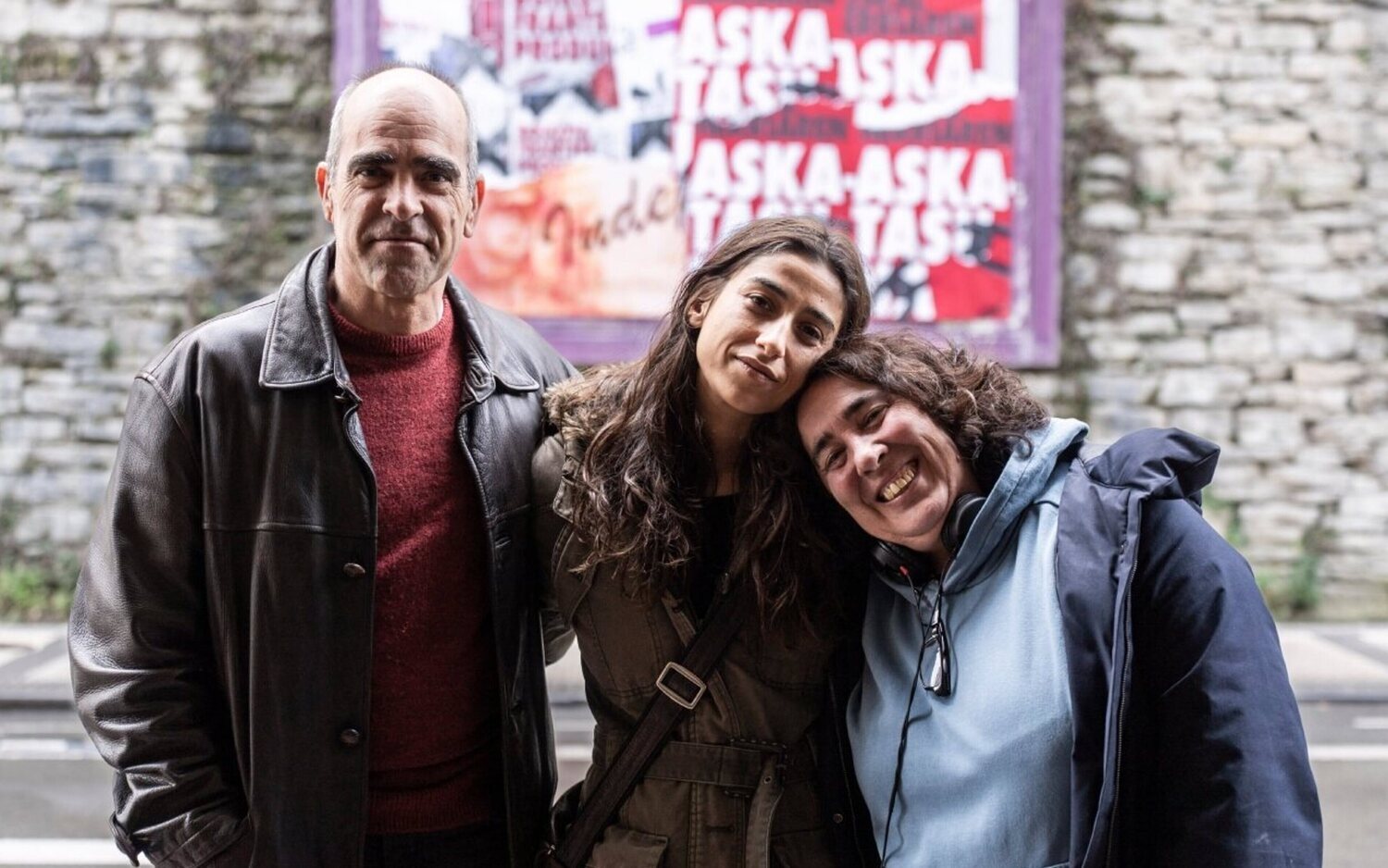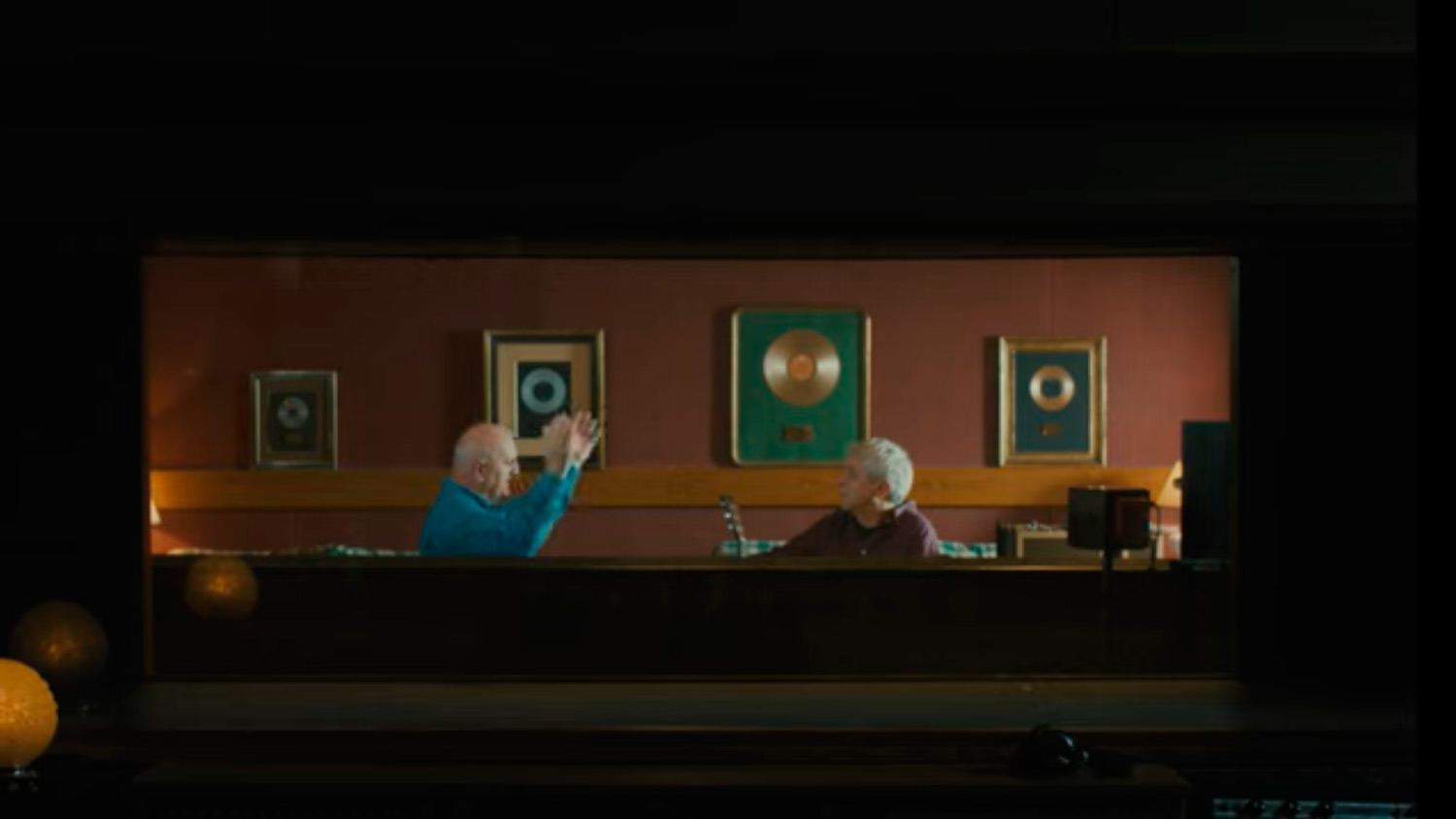"Women have an unknown rebellion and a great genealogy of risk."
- Talk with passion and join passion and work constantly. Film, history and feminism are the protagonists of the film of their life. He shows in his books, articles, conferences and courses to women who move away from norms, dynamize gender orders and shape new references. All of these heroes on the screens take them one by one out of their big bag to introduce us words and words.

María Castejón. Estella, 1975
She is an expert in the history of women and in the representations of gender in audiovisual media. Film critic, researcher, essayist, theorist, programmer and professor. Bachelor of Humanities from the University of La Rioja and Doctor of Contemporary History from the University of Salamanca. For years he was co-director and programmer of the International Exhibition of Women and Film of Pamplona and is the author of numerous articles and research works. He is the author of the books Gender Frames and More Gender Frames (More Gender Frames) and Rebels and Dangerous Films on History, Gender and Spanish Cinema ol.Programador of the cycle Rebels and Dangerous (Rebels and Dangerous) held in Pamplona, Villava, Burlada, Zizur and Estella. He's a high school teacher.
How did she start exploring films to talk about women's history?
While I was studying, I was lucky, and especially from France and the United States, women's history books began to arrive. There's a very interesting work. Georges Duby's History of Women, a kind of five-volume encyclopedia that changed my life. Cinema has always liked me and when I did the PhD, I took film as a source of information to talk about the history of women from 1975 to 2000, although at that time I still do not consider myself a feminist.
There were very few things written about women's history. As a historian, I have seen many times that they barely appear in documentary sources. I studied the history of the women of Villava, for example, in an intense work published in 2018 and for that I reviewed the municipal records of 100 years. Only men appeared, both because of the low social weight of women and because of the language, since speaking generically in Spanish only speaks of men. Unlike the written sources, there are always and have been women in the movies, even if they are characters in the background. So I found it a very interesting source to talk about the story of women. On the other hand, cinema is much more rewarding for its own artistic point of research and that I have always liked.
What do you see in film?
With purple goggles, patriarchy is everywhere. There are two ways to talk about film and feminism: one is to look at the representation we have had women, and one is to show the rebellious and dangerous women in the movies. The latter is the point of view I like most, that of showing dissent.
Dissent has always been in the world of film, but we have not been told. One example: Mae West, a powerful, funny and free woman. He had absolute control of his films. I had money, and that's not common in the movie world. Ixabel Coixet has directed 25 films, is the director who has made the most films throughout the state and continues to ask for money to carry out his work. Why is a woman so important to our genealogy proclaimed only by men? Why haven't we done that? And like her, there have been many other strong women in classic cinema: The characters of Katharine Hepburn, Joan Crawford, Barbara Stanwick -- there's more dissent than we think about film. That's what interests me, the women who break the schemas.
What is the current picture?
Today, only large platforms buy two types of projects: the stories that women are victims of any gender violence or women in the process of empowerment. That's what they're going to buy you, but not a more complex series. But we can't always be victims or try to empower ourselves. Pre-menopause, for example -- yeah, what? Or does your husband leave you? Empowerment is all well and good, but having all the time around it is tiredness and our young people are already very empowered. We have to create a genealogy of bad, funny women, cachas ... We have to do all kinds of women. Cinema must denounce unjust realities, but it must also serve to build imaginaries and to enjoy fantasy.
However, we are at a very interesting time thanks in large part to the platforms. The fourth wave of feminism cannot be understood without media or fiction.
"The fourth wave of feminism cannot be understood without media or fiction"
And from the picture in Spain, what do you think?
Spanish cinema is a very small, paternalistic, corporatist and rebellious industry, and that is why we have not yet had a Me too, for example. They give us money to make intimate films, but we want to do more!
Money is power. What you've done now with Barbie is paradigmatic. They get money and round a great job. But very few women have come to get the budget that Director Greta Gerwig, Mae West had at the time, the Kardashian sisters and little more. They are women who have worked a lot and have had to swallow a lot to get to where they are.
How do you bring the Barbie phenomenon?
It's tremendous. Very sharp story. His excellent criticism of masculinity has made so many men feel offended and have reacted hard. However, the Alpha Males series they've made in the state want to sell us like a new reading of masculinity, but they don't. Funny yes, but it's not the same. The women who appear there are affected by hysteria or grief, and that is very perverse. It seems that everything is an attempt to change so that nothing changes.
.jpg)
Women's gaze is often talked about. Does it exist?
No. It's not about women, it's about women, and it's not a look, it's a point of view. Women are not just looking. In many interviews, they wonder what it means to be a woman or how women develop to go to stealing. We never talk about the view of men in the movies and don't ask them who they leave when they go to work with.
Women are not able to break the path definitively and permanently. There are transgressive roads and they are mentioned in the media, but then nobody knows if they continue to work or what has happened to them.
Who are the revealed and dangerous in your book?
They are women who move away from the rules of film, dynamize gender orders and create new references. Unfortunate women, rebels, gunmen, pirates, adventurers, evil mothers and women, prostitutes, lesbians, crazy, violent -- who have had to pay a price for breaking the imposed rules. I propose to reflect on the protagonists who live on film screens to recover and make them visible.
“I always tell students not to stop with the first result that appears, because the algorithm is very cannon and always wagers on the system. They don't read the press, they don't listen to the radio because it's annoying. Everything is Tik tok and Instagram”
How does the series influence?
The series bring many new things and new possibilities. They are aimed at the general public and not at a small audience with conscience. The Handmaid's Tale was a milestone that has caused many fractures. Another of the most important feminist series has been Big Little Lies. When we see it, we feel like we're seeing something new.
Works such as these are bringing new references and, at least, we have managed to make the obvious references that existed before unacceptable.
We miss your #picagrams in Pikara Magazine… Yes… I
was there ten years. Now I don't have time, but I'd like to come back. Pikara broke feminism and the game rules of his power relations. From the beginning it gave many people the opportunity to say what they wanted. I say a tremendous love, among other things because I made critical movies there.
He is now a professor. How about young people?
Very satisfied. In the morning I continue to give courses and courses at the institute and in the evenings, because it is a very nice job. In the I teach class Geography and History, and I always dedicate the subject, in some way, to film and to the history of women. A lot can be done in class. However, when talking about feminism, we have to be careful, the adolescents are quite saturated. I'm comfortable because I have a lot of resources and knowledge, but I understand that for many teachers co-education in class is very difficult, because they don't have enough training for it.
"Spanish cinema is a very small, paternalistic, corporatist and rebellious industry"
Young people have a lot of information and often assimilate prejudices and reactionary messages coming from social media. “They have raped him, but of course he was wearing a mini skirt…”, these comments continue to sound. In issues related to feminism, as in many other issues, they always remain with the headline. That's why we educators have to change the way we work: we were starting from knowledge to reach the headline, and now we have to do it the other way around: starting from the head line, we have to give it the whole context. And it's not easy. We are the last analogue generation. Now encyclopedic knowledge makes no sense, everything is on the Internet. The problem is they don't have the ability to abstract themselves.
I always tell you not to stop with the first result that comes out, because the algorithm is very cannon and always wagers on the system. They don't read the press, they don't listen to the radio because it's annoying. Everything is Tik tok and Instagram. Knowing the context and showing a critical view is our main challenge.
Why are girls almost always quiet?
For girls, it's a survival strategy versus invasive masculinity. The way of socializing in the backyards makes it very clear: boys in the middle with football and girls in the margin, in small groups.
There are wrestling girls, but it is not the most common and in most cases prefer not to stand out. Girls pay very expensive wrong. They have enormous pressure.
What changes with age?
When we are told that women are able to do two things, I tell them that women have had to learn to do two things at once.
We have had to learn to develop some skills, and that is why the older we are, the wiser we are. With age, on the margins of society, we also lose some shame.
Being seen as a lady gives us peace of mind. We have much less pressure and it gives us power. It's a huge power lady. If we make ourselves invisible for over 40 and 50 years, we're going to leverage that invisibility to do things.
LAST WORD
Price for making films
"I'm sure Alex in the Church isn't as hard as Ixabel Coixet to get money. It happens that we get used to it. We have internalized that we have to fight more than men and that in the end we have to adapt to what we have to carry out our projects. We are very resilient, but it also has a very dark side: it is very tired and those of us who are old, above all, we are very tired."
Ezagutzen duzue Kneecap filma? Oscar sarietarako hautatu zuten. Belfasteko hirukote baten istorioa da. Kneecap Hip Hop talde ezaguna da gaur egun, eta hizkuntzaren aldeko jarrera (gaelikoa) argia dute, IRAren osteko belaunaldiaren gorabeherak kontatzen ditu filmak; drogak eta... [+]
No other land dokumentalaren zuzendari Hamdan Ballal kolono sionistek jipoitu zuten astelehenean bere herrian, beste hainbat palestinarrekin batera, eta Israelgo militarrek eraman zuten atxilo ondoren. Astarte goizean askatu dute.
Donostiako Tabakaleran, beste urte batez, hitza eta irudia elkar nahasi eta lotu dituzte Zinea eta literatura jardunaldietan. Aurten, Chantal Akerman zinegile belgikarraren obra izan dute aztergai; haren film bana hautatu eta aztertu dute Itxaro Bordak, Karmele Jaiok eta Danele... [+]
35 film aurkeztu dira lehiaketara eta zortzi aukeratu dituzte ikusgai egoteko Euskal Herriko 51 udalerritan. Euskarazko lanak egiten dituzten sortzaileak eta haiek ekoitzitako film laburrak ezagutaraztea da helburua. Taupa mugimenduak antolatzen du ekimena.
Pantailak Euskarazek eta Hizkuntz Eskubideen Behatokiak aurkeztu dituzte datu "kezkagarriak". Euskaraz eskaini diren estreinaldi kopurua ez dela %1,6ra iritsi ondorioztatu dute. Erakunde publikoei eskatu diete "herritar guztien hizkuntza eskubideak" zinemetan ere... [+]
Geroz eta ekoizpen gehiagok baliatzen dituzte teknologia berriak, izan plano orokor eta jendetsuak figurante bidez egitea aurrezteko, izan efektu bereziak are azkarrago egiteko. Azken urtean, dena den, Euskal Herriko zine-aretoak gehien bete dituztenetako bi pelikulek adimen... [+]
Otsailaren 24tik eta martxoaren 1era bitartean, astebetez 60 lan proiektatuko dituzte Punto de Vista zinema dokumentalaren jaialdian. Hamar film luze eta zazpi labur lehiatuko dira Sail Ofizialean; tartean mundu mailako lau estreinaldi eta Maddi Barber eta Marina Lameiro... [+]
A conference for architects has just been held in Madrid to discuss the crisis of the professional architect. They have distinguished the traditional and contemporary way of being an architect. What is traditional? From the epic architect who appears in The Brutalist, where... [+]
Itoiz, udako sesioak filma estreinatu dute zinema aretoetan. Juan Carlos Perez taldekidearen hitz eta doinuak biltzen ditu Larraitz Zuazo, Zuri Goikoetxea eta Ainhoa Andrakaren filmak. Haiekin mintzatu gara Metropoli Foralean.









